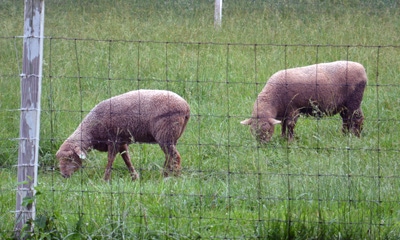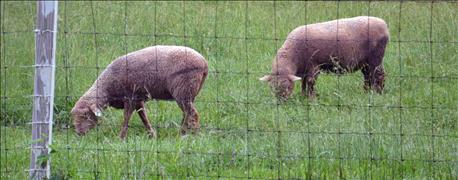
If you have plenty of acres of pasture and don’t intensively graze, you may not see a need to clip pastures after livestock have grazed for a while and eaten the "good stuff," leaving tall grass behind. Chris Parker, retired Morgan County Extension ag educator and a beef and forage producer, believes strongly in taking time to clip pastures.
“I have a disk mower, and it doesn’t take much time, power or fuel to clip it,” he says. “You just want to make sure your blades are sharp so that you get a clean cut. That will foster faster regrowth than if blades are dull and you tear off grass stems.”
Here are three solid benefits Parker sees for clipping pastures.

CLIP PASTURES AND WIN: Chris Parker says there are solid benefits for taking time to clip pastures.
1. Plant energy will go toward producing vegetation and not seed.
“You don’t really want fescue and orchardgrass going to seed if your goal is pasturing the field,” Parker says. If you clip it off, the plant will divert energy back to growing new leaves and forage instead of using that energy for the reproductive stage. Sending the message to plants to go back to the vegetative stage instead is a big benefit for clipping pastures, he explains.
2. Knock off weeds while you can still control them.
Clipping pastures after animals have grazed and left some plants behind helps keep weeds under control, too, Parker says. If you clip early enough, it may be possible to prevent some weeds from going to seed. If weeds produce seeds and the seeds are scattered about, it adds to the seed bank, which will cause problems in the future.
You won’t necessarily kill weeds by mowing them off, especially perennials. However, weed scientists have determined that if you clip off tough weeds, such as Canada thistles, it does help control their growth. Every time the plant is cut off, it drains energy reserves stored up in the roots. Clipping off Canada thistles several times in a season won’t kill the plants, but it will weaken them.
3. Help control pinkeye in livestock species susceptible to the disease.
Parker believes keeping grass clipped down so it doesn’t irritate eyes is a big help with his cow herd. “Once eyes are irritated and watery, it attracts flies,” he says. “Flies often carry the disease that causes pinkeye.”
According to Pipestone Veterinary Services, Pipestone, Minn., a major source of veterinary advice for sheep, pinkeye can also be a problem in sheep flocks. If a herd hasn’t been exposed to pinkeye before and an animal becomes infected, it can spread to up to 90% of the flock, the source says.
Contact your veterinarian for information about prevention and treatment of pinkeye in sheep or cattle. Clipping pastures eliminates a possible irritant to the animals’ eyes that can increase odds for the infection, Parker relates.
About the Author(s)
You May Also Like




